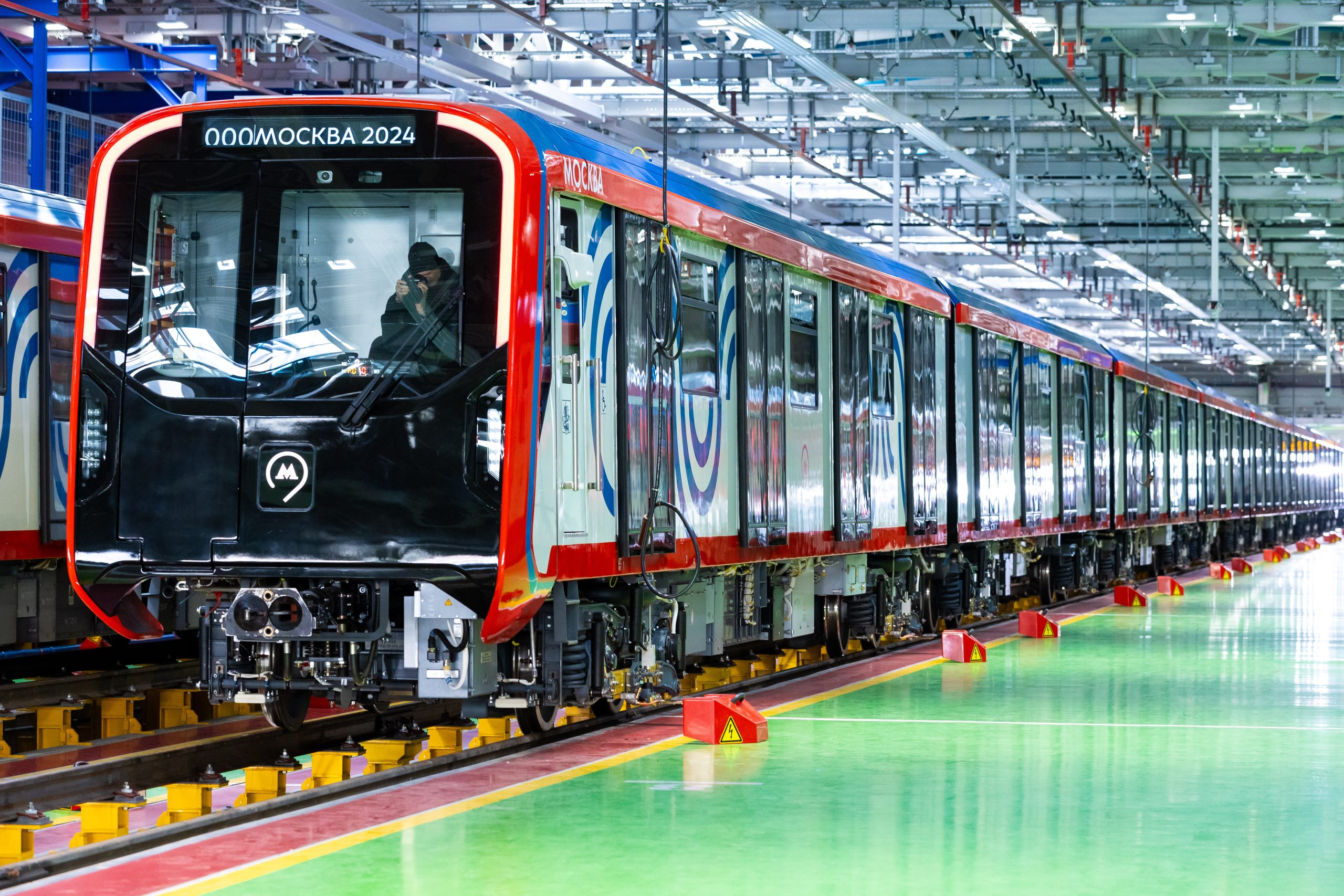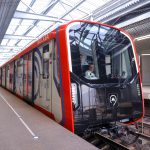 Moscow Metro has presented the new Moskva-2024 train series to enter passenger operation on Line 2, one of the metro’s most popular and extensive lines. In three years, the line will undergo a complete fleet renovation.
Moscow Metro has presented the new Moskva-2024 train series to enter passenger operation on Line 2, one of the metro’s most popular and extensive lines. In three years, the line will undergo a complete fleet renovation.
Moskva-2024 train series delivers an increased capacity as the expanded aisle space has boosted carriage capacity by 17 individuals, ensuring more comfortable and efficient journeys. The comfort vis enhanced due to wider seats with improved upholstery materials offer passengers a more pleasant travel experience. The train is fitted with USB chargers that have been strategically relocated from the seats to handrails, with plans to introduce new Type-C ports and additional connectors, catering to passengers’ evolving needs.
To increase accessibility, the head cars are equipped for passengers with reduced mobility, promoting inclusivity and convenience for all riders.
Compared to its predecessors like the “Number” cars (81-717/81-714), the Moskva-2024 train series boasts a 10% increase in maximum capacity. Notable improvements such as 32% wider doors facilitate quicker boarding and disembarkation processes. The train has 176 information displays, and the introduction of seamless passage from the first to the last carriage and enhanced noise insulation further enhances the overall commuting experience.
With modern cars constituting 74% of the Moscow Metro’s rolling stock, this unveiling marks a significant step towards fulfilling the city’s commitment to innovation and efficiency. Renovation of the rolling stock does not stop here, as now the development of an even more modern Moskva-2026 series is underway.
At the beginning of 2023, Moscow Metro announced that 300 additional Moskva-2020 cars would be delivered to enter passenger services on the Big Circle Line. According to the 2030 transport strategy of the city, all public transport fleet will be replaced with electric vehicles manufactured in Russia. Until 2030, the entire tram fleet will be renewed with modern vehicles and 95% of the metro cars will be replaced by modern vehicles.
Since 2010, Moscow has effectively reduced the average age of metro trains by half, from 24 to 12 years, displaying a dedication to enhancing commuter experiences.
Share on:









